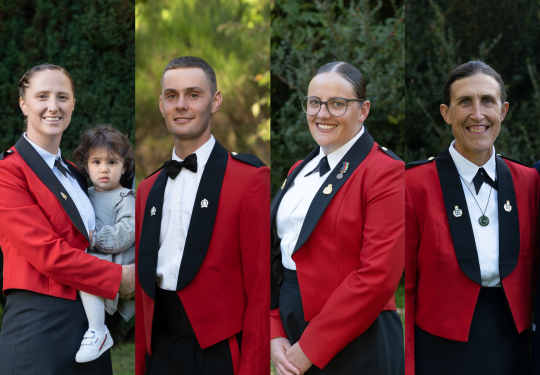Specialist Kiwis bring their skills to the New Zealand Army
Four New Zealand professionals describe their transition to specialist officers in the New Zealand Defence Force.
19 May, 2023
For professionals looking for a job that’s out of the ordinary, active, rewarding and challenging, the Defence Force has a need for sought-after skills.
The Specialist Officer Induction Course is a 12-week course at Waiouru Military Camp designed to introduce potential officers to the standards and discipline required to be an effective member of the NZ Army.
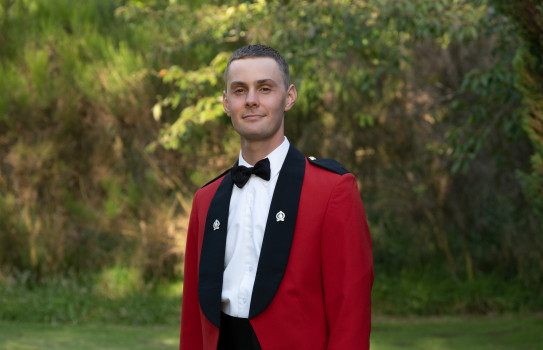
Lieutenant Troy McLaren
Fresh out of law school, Lieutenant Troy McLaren feels incredibly lucky that he gets to combine being a lawyer and a soldier as his career.
Graduating in September from the University of Auckland with a conjoint Law and Computer Science degree, he discovered it was possible to use his degree in the New Zealand Army.
“Joining the military was a path I considered when I left high school. I was tempted by the mental and physical challenge that it posed. But I ended up committing to a six-year academic route instead,” says Lieutenant McLaren.
When searching for potential public service legal roles Lieutenant McLaren was immediately interested when seeing the role of a Legal Officer.
Legal officers work as in-house lawyers and can advise on any relevant area of law ranging from criminal, administrative, military, employment, human rights, international, contract and resource management law. Legal Officers attend Courts Martial and other courts/tribunals.
“I was intrigued by the variety of work legal officers are involved in. Their ability to advise on diverse areas of law appeals because it means a wide-ranging career and opportunity to continually learn.
Going overseas and getting involved in physical training exercises is something no other law career offers. This sets NZDF apart from other career paths I was exploring.
The course includes an introduction to basic tactics and a taste of life as a combat soldier.
“We got to take turns in the different section roles and carry out ‘missions’ to clear enemies from tactical positions. Learning basic assault manoeuvres, we got to fire blank ammunition at enemy parties we encountered,” he said.
“There were amazing sunrises and sunsets across Tongariro National Park every morning and evening. We tramped through torrential rain, floated down a river with our packs and stayed awake for two hours every night for sentry duty under the stars. It made me feel both bizarre and incredibly lucky that I was able to do all of these things as part of my job”.
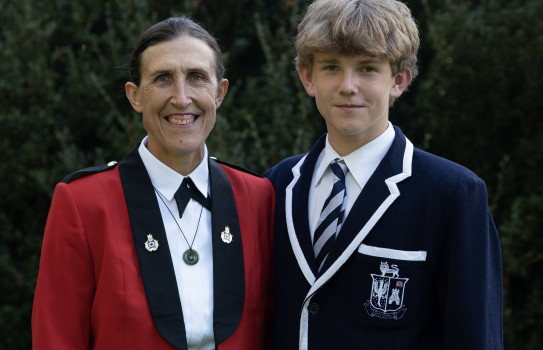
Chaplain Paula Levy
Chaplain Paula Levy had been a Church Minister for seven years when a surprise phone call set her on a new path as a Chaplain in the New Zealand Army.
Chaplain Levy, who hails from Whangārei, has worked within the Presbyterian Church for many years. Prior to serving as a Minister she worked with the Church as an English teacher in Vanuatu and as a careers advisor.
“I originally applied to NZDF about eight years ago, but put this idea on hold because of the ages and stages of my children.”
“Then out of the blue, about a year ago a New Zealand Defence Force Chaplain called me. We’d not met, but my name had come up in conversation and he decided to give me a call to see if I would consider applying to the Specialist Officer Induction Course to become a Chaplain,” she adds.
“Discovering more about the role and what life is like in the NZ Army, I went away from that conversation thinking, I would love to do this, but is it too late for me?”
Enlisting into the NZ Army at the age of 55 was an intimidating prospect for Chaplain Levy, but she was assured that providing she met the physical and health requirements, her age didn’t necessarily rule her out.
She said one of the most challenging aspects of the training turned out to be a highlight, because it gave her an insight into her new role.
“The seven-day field exercise was incredibly challenging but such a rewarding experience.
Being out in the wilderness, sleeping in a hole in the ground, learning to survive and completing the tasks we were set, felt like a real achievement.
“Though I wasn’t yet a chaplain, I had moments that gave me a glimpse of what the role would be like."
When you’re on sentry duty in the middle of the night with one other person, you have conversations about all sorts of things. I got to know people and build connections.
Chaplain Levy’s three children, David aged 19, Grace aged 18, and Josh aged 13, fully supported her decision to join the NZ Army and proudly looked on at her graduation in April.
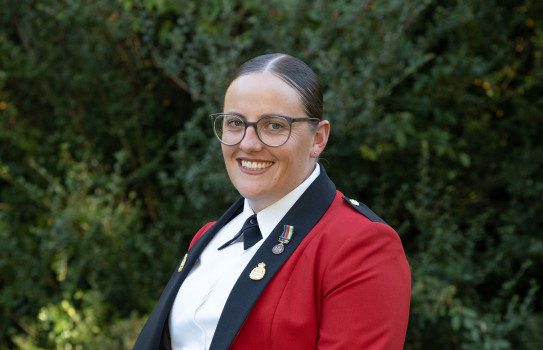
Lieutenant Megan Watson
In her civilian life, Lieutenant Megan Watson is a Registered Nurse, working in a busy post-anaesthetic recovery ward at Christchurch Hospital.
Now her medical expertise will be put to use in her military life in her new role as a Nursing Officer with the New Zealand Army Reserve.
Lieutenant Watson had previously served as a Medic with the Army Reserve for five years. When she heard about the Specialist Officer Induction Course, it was an easy decision to apply.
I wanted to bring the same skills that I have when wearing blue scrubs, to my life in green. I knew the course would help me to achieve that ambition.
She says the highlight of her training was definitely the camaraderie within the group and the support she received from the Officer Cadet School and Officer Cadets while at Waiouru Military Camp.
“Being able to build relationships with soon-to-be specialist officers was awesome. A wide range of trades were represented, it was great to meet new people and learn more about different areas within the Army,” she says.
In 2018, she left the Regular Force to study full-time for a Bachelor of Nursing at the Ara Institute of Canterbury, and a Master of Health Sciences through the University of Canterbury. During her studies, LT Watson joined the New Zealand Army Reserve, and she hasn’t stopped, fitting in her duties on evenings and weekends.
LT Watson graduated from the SOIC in April and is looking forward to starting her new role.
“The training has opened up the possibility of new experiences for me, including deploying overseas. I can’t wait to get started.”
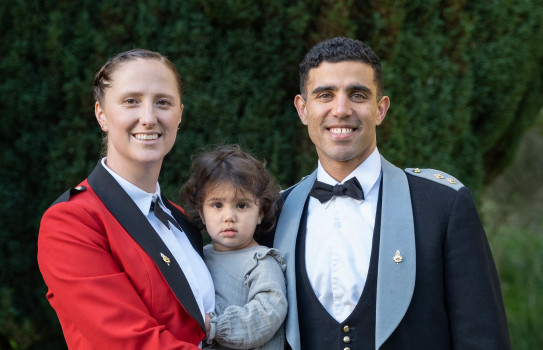
Lieutenant Kate Heynes
Lieutenant Kate Heynes never imagined that just three months after returning from maternity leave to her job as an accountant, she would embark on a new career as a Learning Development Officer (LDO) in the New Zealand Army.
Thames-raised Lieutenant Heynes had been working as an accountant for her father, but when the family business was sold it created an opportunity for her to move in a new direction. She was familiar with military life as her husband Lieutenant Seth Heynes serves as a psychologist based at Linton Military Camp.
I didn’t think I was fit enough, or young enough, to become a soldier. But my husband explained there’s far more to the Army and encouraged me to take a closer look.
In January, she reported to Waiouru Military Camp to begin training, while Lieutenant Seth Heynes cared for their 18-month-old daughter Theodora.
Switching from being a full-time parent to an officer-in-training was a bit of a shock initially, she said.
“My husband talks about the ‘shock of capture’, a psychological term where when you go into an environment that’s vastly different to what you’re used to. Before you can adapt and adjust to this new way, you go into shock.”
But once that initial jolt wore off, she soon adjusted.
Her Physical Training Instructor tailored bespoke physical exercises for Lieutenant Heynes to support her post-pregnancy transition to military physical fitness, proving that the NZ Army isn’t restricted to a ‘one size fits all’ approach.
“Now I’ve graduated, I’m really excited to get stuck into the role and make a difference using the skills I’ve been taught,” Lieutenant Heynes said.
Lieutenant Heynes graduated in April and has been posted to the New Zealand Defence College’s Hokowhitu campus in Palmerston North, in a junior LDO position.
In her new role she will revise existing syllabuses and create new ones to enable the development of fit-for-purpose training courses, as well as interacting with staff at Linton and Waiouru to ensure training needs are being met.
